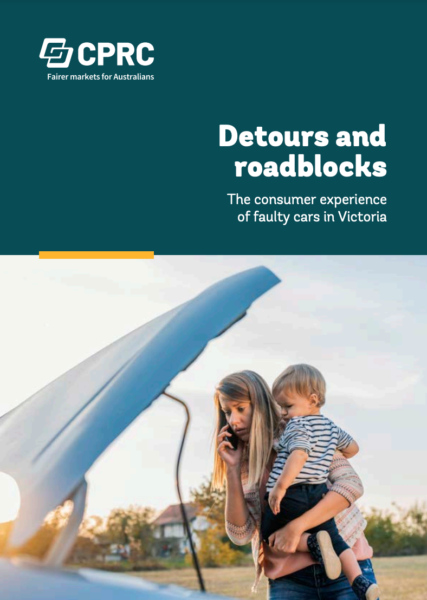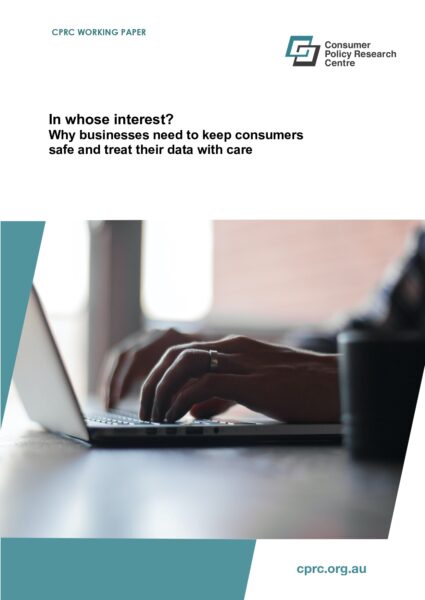Summary
This report refreshes CPRC research findings from 2018 – and also expands the research scope to cover recent developments in data technology, collection, sharing and use.
Key findings from the 2020 survey include:
High use of, and reliance upon, data-driven products and services:
- 70% of Australians use Google products or services daily, while 58% use Facebook daily.
- 28% of 2020 survey respondents visited online shopping websites at least once a week, up from 21% in 2018.
- Location apps and GPS devices were by far the most commonly used internet-connected devices (69% of consumers) – while smart assistants (32%) and exercise health trackers (24%) were also commonly used.
Most Australian consumers do not feel comfortable about how their personal information is handled
- 94% of Australian consumers are uncomfortable with how their personal information is collected and shared online.
- 88% of Australian consumers do not have a clear understanding of how their personal information is being collected and shared.
- 85% of consumers consider it is unfair for companies to share personal information they’ve provided with other companies – while 90% think it is unfair for this information to be sold to other companies.
- A large majority of consumers also find it unfair when companies collect more information than is necessary to deliver the product or service they are receiving (88%).
- Consumers have high concerns about online safety issues, with concern highest regarding data breaches or hacks (94%), personal data being used for fraud or scams (93%) and children’s data being misused (92%).
Privacy Policies do not aid informed choices and do not provide consumers with genuine choice or control
- In 2020, 94% of Australian consumers reported not reading all of the privacy policies or T&Cs that applied to them in the past 12 months
- Of consumers who had read privacy policies, 69% reported accepting terms even though they weren’t comfortable with them – the main reason for doing so was it was the only way to access the product or service (75%)
- Consumer engagement with Privacy Policies and T&Cs has not improved between 2018 and 2020. In both years one third (33%) of consumers told us they never read these documents, and 35% read them only for a few products/services
Australian consumers believe that government has an important responsibility to ensure that consumers are protected
- 94% of consumers expected government to protect them against the collection and sharing of their personal information (67% high responsibility, 27% moderate responsibility);
- 93% of consumers expected government to improve their understanding of how personal information may be collected and shared (67% high responsibility, 26% moderate responsibility);
- 94% of consumers expected government to protect them from having their information being used in a way that makes them worse off (79% high responsibility, 15% moderate responsibility.
Urgent reforms to laws are required to protect consumers’ privacy and ensure their data is used safely and fairly
- Consumer engagement with Privacy Policies and T&Cs has not improved in the past two years. At the same time, consumer discomfort and opposition regarding the data practices that Privacy Policies and T&Cs can permit has grown.
- There is now a chasm between how consumers expect to be treated, and how they are currently treated, in digital marketplaces..
COVID-19 has increased the urgent need for reforms to Australia’s consumer protections framework, so consumers aren’t relying on analogue safeguards in an increasingly digital world..
- Reforms to consumer protections – such as unfair trading practice and contract term prohibitions, and a general safety provision, being added to Australian Consumer Law – as well as reforms to the Privacy Act, need to be progressed without delay. This will ensure
- Australian consumers are properly protected, and help to drive greater trust and confidence in digital marketplaces.

